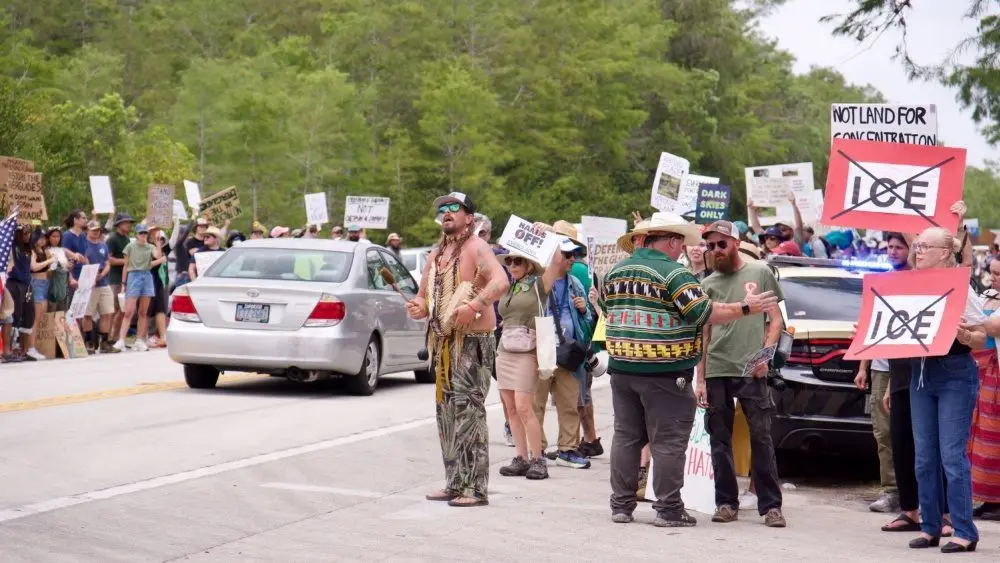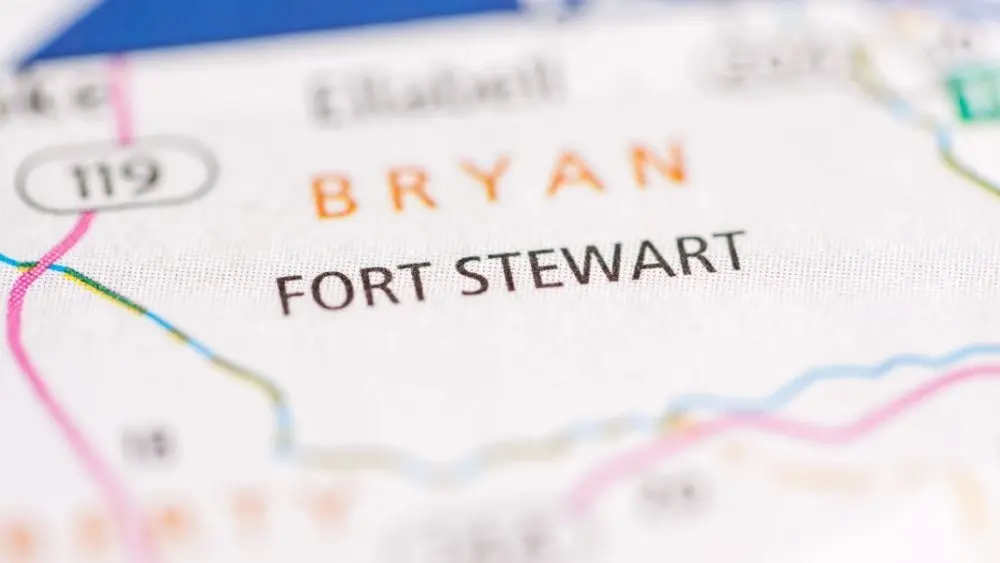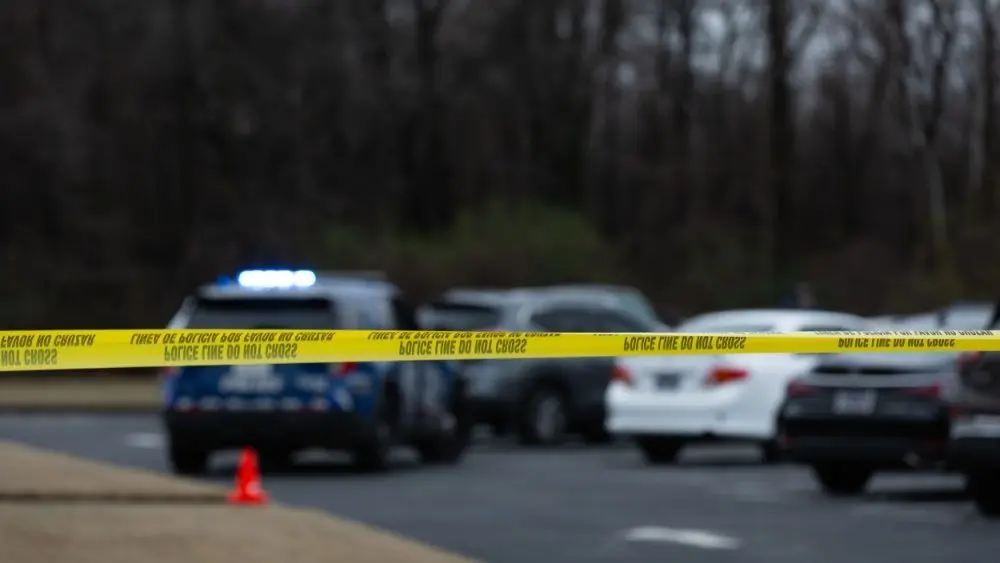A Florida federal judge has issued a temporary stop to further construction at the controversial immigration detention center in the Florida Everglades dubbed “Alligator Alcatraz,” citing concerns over its impact on the surrounding environment.
U.S. District Judge Kathleen M. Williams made the decision on Thursday after two days of testimony in Miami federal court, over a lawsuit alleging the site’s construction skirted environmental laws. Judge Williams approved a 14-day temporary restraining order after hearing two days of testimony regarding the potential ecological harm posed by the facility. The pause comes as the court prepares to resume hearings next Tuesday; however in the interim, Judge Williams opted to temporarily intervene to protect the fragile ecosystem of the Everglades, which could suffer irreversible damage without immediate action. While the center can continue housing detainees, any new construction activities must be suspended during this period. Williams later clarified that this ruling halts activities including “at the very least, filling, paving, installation of additional infrastructure” and also said no additional lighting fixtures should be added.
Alligator Alcatraz was built in just a few weeks about 50 miles west of Miami, deep within the Everglades. The site includes hundreds of tents, trailers, and other temporary structures, with capacity for more than 3,000 detainees. It sits on the grounds of the largely unused Dade-Collier Training and Transition Airport, which is owned by Miami-Dade County. The facility also borders land leased to the Miccosukee Tribe of Indians of Florida, including areas with homes, a school, traditional hunting grounds, and sacred sites. The tribe formally joined the lawsuit last month, citing fears that the detention center could harm nearby communities and tribal land.
The hearing comes after environmental groups sued to stop the facility, located on an airstrip located in the sensitive wetlands of Ochopee’s Big Cypress National Preserve, from operating. Environmental organizations, alongside the Miccosukee Tribe, requested the injunction, arguing that construction began without legally required environmental assessments. The area in question is ecologically sensitive and holds cultural and spiritual importance for the Miccosukee people. Notably, it is also home to endangered species such as the Florida Panther.
Miccosukee Chairman Talbert Cypress in a statement: “We welcome the court’s decision to pause construction on this deeply concerning project. The detention facility threatens land that is not only environmentally sensitive but sacred to our people. While this order is temporary, it is an important step in asserting our rights and protecting our homeland. The Miccosukee Tribe will continue to stand for our culture, our sovereignty, and the Everglades.”
In response to the judge’s ruling, a spokesperson for Florida AG James Uthmeier’s office released a statement to ABC News: “Judge Williams’ order is wrong, and we will fight it. However, it does not shut down Alligator Alcatraz, which will continue to send illegal aliens back to where they came from.”
The judge’s decision came after a relatively limited hearing on Wednesday, during which only five witnesses were presented by environmental advocates. Lawyers representing the state argued that because Florida initiated and funded the construction and currently oversees operations, the project is exempt from the National Environmental Policy Act (NEPA) — the primary legal standard being invoked to challenge the facility.
Though the federal government provides funding, Florida manages the facility — which critics note is intentionally vague and allows officials to circumvent key regulatory obligations. Florida Governor Ron DeSantis has previously claimed that Florida is carrying out federal immigration enforcement on the government’s behalf, expecting reimbursement for the operation’s full cost. However, during ongoing court proceedings, neither state nor federal officials have been able to clearly identify who is ultimately responsible for the facility’s oversight.
Editorial credit: Carlos Ochoa / Shutterstock.com







